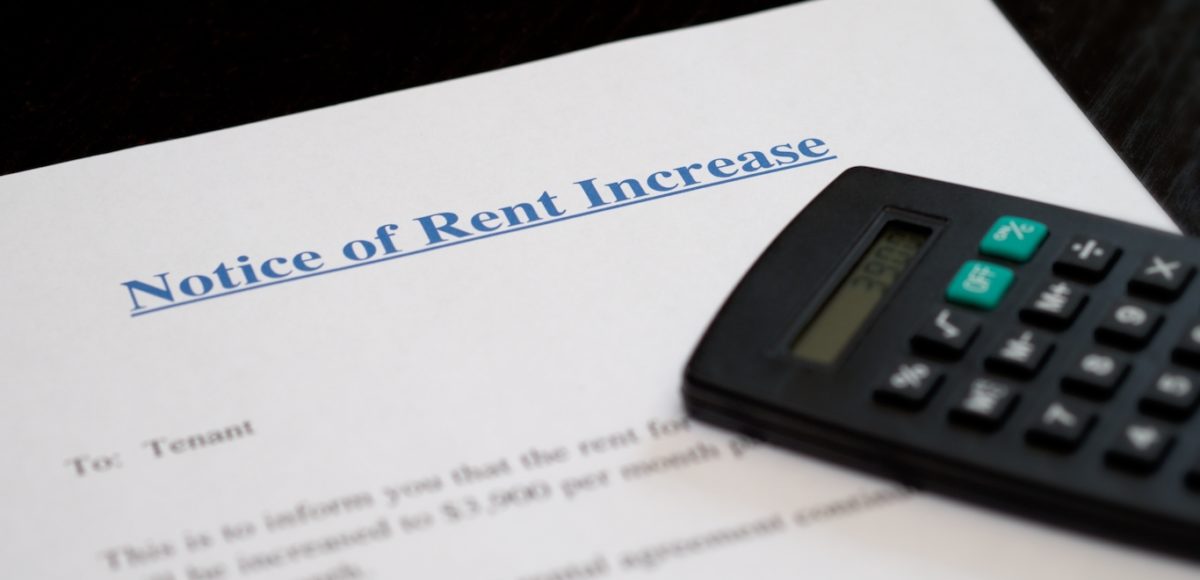You’ve just received an email notifying you that next year’s rent is going up. You may be wondering: is it illegal to increase rent? Rent control aside, the answer is, in most cases, unfortunately no. However, there are renter’s protection laws in place — for example, your landlord cannot raise the rent whenever they feel like it!
Rent laws vary by state, but there are some general guidelines that can help you figure out if you’re dealing with an illegal rent increase.
Read on to learn more about rent increases — and to determine whether or not your rent increase may be unlawful.
Fast FAQS: The Basics of Rental Increases
Is it illegal to increase rent?
The legality of your rent increase depends upon a few factors, including the timing of the rent increase, your lease terms, and local and state laws. It is never legal to increase rent for retaliatory or discriminatory purposes.
Is it legal to increase rent every year?
Unless you are fortunate enough to have found a rent-controlled property, the answer is likely no. You’ll need to refer to your local and state laws to be sure.
Can a landlord raise rent month to month?
If you are in a month-to-month lease, the answer here is most likely yes. Provided your landlord gives the agreed-upon and state-determined amount of notice, they are well within their rights to increase your rent or adjust any lease terms month to month. Be sure to read your lease agreement carefully and in its entirety if you opt for a short-term or month-to-month lease.
Can a landlord raise rent during a lease?
Sometimes your landlord can raise your rent during your lease — depending upon the terms you’ve agreed to. You’ll need to carefully refer to your lease agreement and cross reference local and state laws.
What is the most a landlord can raise rent?
Landlords can determine any rental price of their choosing in most cases — so long as they provide timely, written documentation notifying you of the rent increase.
Was That an Illegal Rent Increase or Not?
Maybe – if your landlord gave you less than 30 days’ notice.
Generally, landlords are required to provide notice before raising your rent. This number may differ from state to state, but a general rule is that landlords must give you a written 30-day notice before a rent increase goes into effect.
The 30-day window gives you time to accept the increase, negotiate the rent increase, or refuse the increase and find a new place to live. Your landlord must provide this notice in writing, allowing you to retain a written record of the increase amount and the date it becomes effective.
Maybe – if your rent increased in the middle of your lease.
Unless your lease states otherwise, your landlord cannot increase your rent in the middle of a lease agreement. Your lease acts as a binding legal contract for both you and your landlord. When you sign a lease, both you and your landlord are agreeing on a specific rent price for a specific amount of time. If you signed a 12-month lease with a monthly rent of $1,000, your landlord cannot decide to raise the rent four months in. That would be a prime example of an unlawful rent increase.
However, your landlord does have a chance to renegotiate the rental price as your lease comes to an end — unless you live in a rare, rent-controlled area. Month-to-month leases, for example, can be susceptible to frequent rent increases as your landlord can legally increase the rent at every renewal by as much as they see fit. For that reason, a year-long lease is likely a better option if you plan to stay somewhere for the long term!
No – not if you signed a lease that allows for a rent increase.
The first step when you’re faced with a rent increase: reference your lease agreement. If your original rental agreement states that lease can be changed for certain reasons — and you signed the lease on the dotted line — you may be out of luck.
Keep in mind that there are also specific situations that merit a rent increase. For example, your rent may increase if you get a new pet or a new roommate. This is another instance where you want to check your lease agreement for specifics.
Yes – if your rent increased due to discrimination or retaliation.
Chat with your neighbors about their rent increases. Although discussing rent prices may seem tacky, this can be helpful when you’re figuring out if a rent increase was legal or not. Unfortunately, tenants all over the country have faced illegal rent increases due to discrimination or retaliation. If you believe your rent was increased because of your identity or because you’ve offended your landlord in some way, check with your neighbors. If you’re the only one on your hall who is receiving a rental increase (or a larger-than-normal increase), you probably want to investigate further.
If your rent increase is due to discrimination or retaliation you’re protected under the Fair Housing Act. You’ll want to file a complaint with your state and the U.S. Department of Housing and Urban Development
Find an Apartment That Fits Your Budget With ApartmentSearch
If you find that your rent increase is legal, it could be time to move on to a more affordable option. ApartmentSearch is here to help. With powerful advanced filters, you can find an apartment that best suits your budget and your needs.




